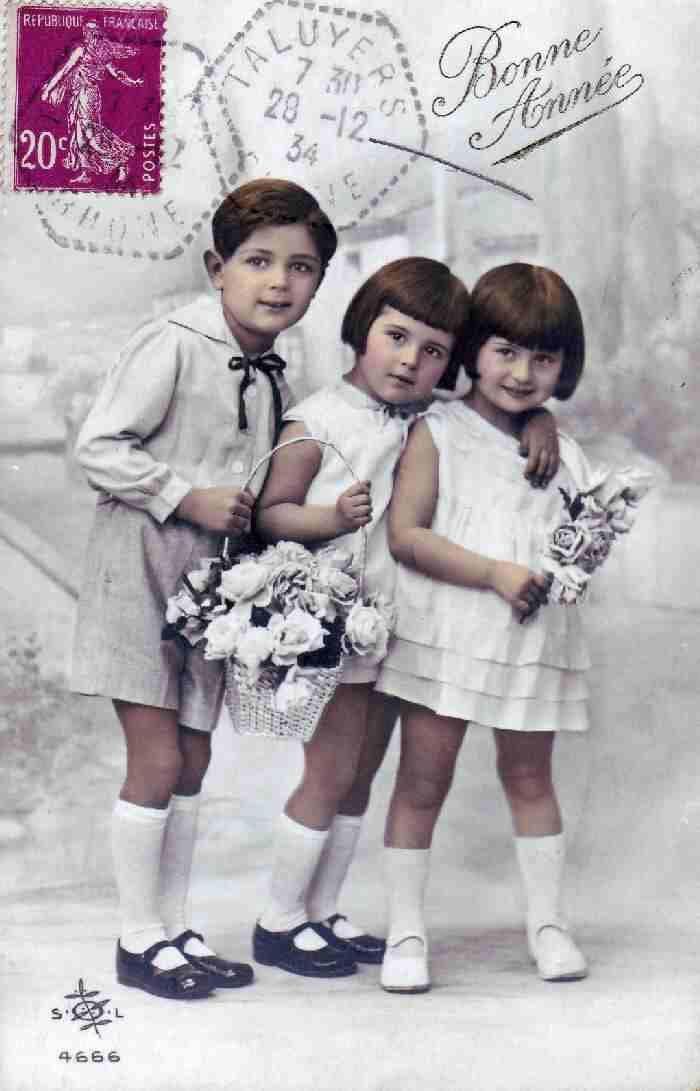
Figure 1.--Childen were a popular topic for post cards in France. Here is a New Years card in 1934 with children all dressed up for the holiday. |

|
1ér janvier. New Year is one of the oldest and most universally celebrated holiday around the world--although the fate of celebration varied. The same is true of France. After the Christmas celebrations this was another opportunity to celebrate. The Romans celebrated the New Years, but an enprecise calendar caused the celebration to slip. Jukius Ceasar himseld set the date at January 1 in what came to be called the Julian calendar. The Church susequently frowed on celebrating pagan festivals. It was, however, a difficult celebration to sasmp out. And imperfections in the Julian calendar caused the date to slip over time. Thus New Years was being celecrated between the end of March and the beginning of April, essentially the arrival of Spring. This finally changed in 1582. The reformed or Gregorian calendar was adopted in France. And the French began celebrating NewYears on January 1. Families and friends like to dine together once again at Le Réveillon or Fête de Saint-Sylvestre. At midnight, people go out into the street to share New Years greetiungs with friends ad neighbors. There are many regional variations. In the Midi Pyrenees, the people attend evening mass and then join a procession to the vineyards and pick grapes at midnight. Presumably this is symbolic as there woud be no grapoes in January. Paris like other capitals celebrate a more bousterous Christmas. There is a 2-day festival. Thousands of performers from all over the world help to celebrate New Years in Paris. RheEifel Tower has become a centerpirce. Special lights were added in 2009. There is parade through Chantilly on the 31st December and then on the 1st January the gala moves to the Trocadéro, under the Eiffel Tower. New Years Day is a day for exchanging gifts and festive cards. Some traditionalists insist on giving presents and cards on New Years rather than Christmas.
Navigate the Boys' Historical Clothing Web Site:
[Return to the Main French holiday page]
[Return to the Main national holiday page]
[Introduction]
[Activities]
[Biographies]
[Chronology]
[Clothing styles]
[Countries]
[Girls]
[Bibliographies]
[Contributions]
[Essays]
[FAQs]
[Glossaries]
[Images]
[Links]
[Registration]
[Tools]
[Boys' Clothing Home]
